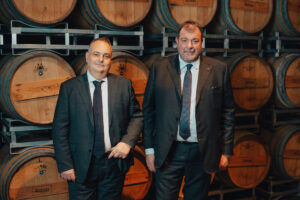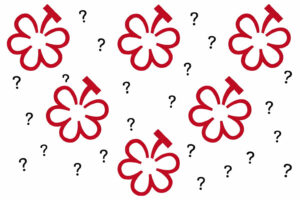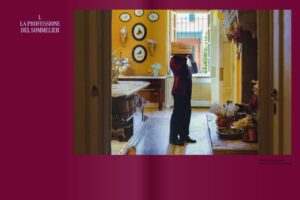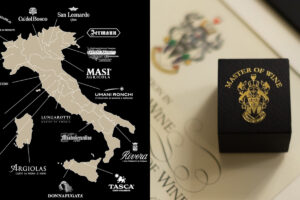“The tendency towards excessive alcohol consumption in Italy affects a minority of the population and varies widely in age. In Italy, responsible consumption is still dominant over excessive consumption of alcohol”. This is the synthesis of a study by Ispo (Renato Mannheimer) for Federvini, the organization of wine and spirits enterprises. It investigated the drinking habits of young Italians compared with those of young people from three other European countries: the United Kingdom, France and Germany.
The purpose of the study was to understand whether the drinking habits of the younger generation in Italy were becoming more like the Anglo-Saxon model or whether the tendency at a certain age was to recover the taste of quality over quantity drinking. We interviewed four statistically representative groups between 14 and 44 years old, residing respectively in Italy, France, Germany and Great Britain.
One of the first and most important findings of our study showed that in Italy the tendency towards excessive drinking affects a minority of the population and varies greatly in different age groups: starting with 19% among 16-17 year olds, to a maximum of 23% among 18-19 year olds then down to 16% among 20-22 year olds, 12% among 23-29 year olds, and so on. In Germany and the U.K. excessive consumption of alcohol is not only more widespread than in Italy, but it remains constant at all ages: in the U.K., starting with 33% among 14 year olds followed by 40% among 20 year olds and 25% among 40 year olds. In Germany, 50% among 14 year olds, 45% among 20 year olds and 22% among 40 year olds.
The “binge drinking” phenomenon is less frequent in Italy than in the rest of Europe and is restricted to a narrow segment of the population, mostly young people: only one out of ten, in fact, admits to drinking “not very often, but a lot“ while in the U.K. this percentage rises to 23% and Germany 27%.
It was also found that young people abroad have drinking experiences at an earlier age. Analyzing, for example, the age of the first alcoholic drink, it seems that Italy is a generation behind compared to Germany and the U.K. A relative majority (32%) of respondents said, in fact, that they had their first drink of alcohol at 15-16 years old while only 8% did so before the age of 15. In Great Britain, however, the absolute majority of respondents (51%) had their first drink before the age of 15 and 32% between 15 and 16.
Even the age of the first “hangover” reveals the differences between Mediterranean and Anglo-Saxon cultures. In Italy it happens between 17 and 18 years old while in the U.K. and Germany between 15 and 16 years old. Further, in Italy the relative majority (35%) of respondents declared they had never had “a hangover” while in France the percentage was 23%, in Germany 14% and in the U.K. only 8%.
However, analyzing the data between different generations we can see the first signs of a tendency to “burn the bridges” in Italy and lower the age of the first “hangover”. The percentage of those who had this experience between 15 and 16 increases as the ages decrease: going from 12% among 35-44 year olds to 30% among 16-18 year olds. On the contrary, the percentage of those who had this experience between 19 and 21 increases as age increases: 1% among 16-18 year olds to 15% among 35-44 year olds. These statistics are still numerically limited and should be monitored in the coming years in order to understand if these are really the first signs of a culture that is changing. Another interesting finding showed that, in Italy, responsible alcohol consumption is still stronger than excessive drinking. In Italy, the tendency to ration alcohol consumption throughout the week is more widespread than in the other sample countries: 25% in Italy, 17% in the U.K. and 10% in Germany and France.
If drinking one or two glasses of wine during meals is the preference in Italy, in Germany, the absolute majority of respondents (64%) prefer to concentrate alcohol consumption in one day. Italy is also a nation of connoisseurs: 80% like “drinking a smaller amount but quality” and 70% acknowledge that “knowing how to drink well is a real art”. The taste of “drinking quality” is refined with age: while most 14 year olds hardly ever drink, the pleasure of drinking in moderation begins as they get older: 68% among 16-18 year olds, 77% among 19-24 year olds, 83% among 25-34 year olds and so on. The attention to quality drinking is definitely less important in Germany (-29 p.p) and in the U.K. (-11 p.p). In Italy, furthermore, the combination of good food and good wine is strong: 64% like drinking moderately with good food while 16% do not.
The percentage is lower, however, among those who rarely or never drink (25%). This indicates that the pleasure of drinking at table involves practically everyone, even those who usually do not drink. The study has shown that drinking daily, paying attention to the quality of the beverage and accompanying alcohol with good food are the main ingredients of the Italian style. The results of this study seem to have shown that a domestic ritual of alcohol consumption leads to responsible consumption. On the other hand, however, concentrating consumption in a single day assigns an instrumental value to alcohol as a means to reaching effects that go beyond simple tasting, and could involve the risk of exceeding and drinking “as much as you want”. To the question “ How much do you like to drink alcoholic beverages to make you feel more secure?” Fifty-nine percent of the Italians answered, "I don’t like it"; the French 48%, the Germans 38% and the British 25%.
The proportion of those who admit to drinking “to feel more secure” increases abroad: 8% in Italy, 17% in Germany and 25% in the U.K. Germany and Great Britain are the countries where there is a more widespread tendency to attribute an instrumental value to alcohol, and it is precisely in those countries where we also find the more widespread habit of excessive alcohol consumption.
We wondered whether the Mediterranean style and culture of drinking is enough to teach responsible consumption to the future generations or whether legislation is needed. Faced with the question whether explicitly to introduce a ban on the sale of alcoholic beverages to anyone under 18 years old and raise the ban on the use of alcoholic beverages from 16 to 18 years old, the answers of the respondents did not help: an absolute majority (57%) is undecided, and the rest of the sample is divided equally between for (19%) and against (24%). Among the latter, however, we found a higher percentage among younger people: 18-19 year olds (41%), 20 - 22 year olds (31%). Shouldn’t we listen to their opinion?
Copyright © 2000/2025
Contatti: info@winenews.it
Seguici anche su Twitter: @WineNewsIt
Seguici anche su Facebook: @winenewsit
Questo articolo è tratto dall'archivio di WineNews - Tutti i diritti riservati - Copyright © 2000/2025








































































































































































































